KEYNOTES
The keynote speakers for the IFIP Performance 2025 conference will be:
Mark Squillante (IBM Research) - “At the intersection of applied probability, performance evaluation and quantum computing”
 Strong connections exist between random walks in the nonnegative quarter plane (RWs) and queueing systems arising in the performance analysis, modeling, and optimization of computer and communication systems. Solving for the stationary distribution of such RWs to obtain measures of interest is often based on either analytic or computational approaches. Notwithstanding the great strides of the latter, computing the stationary distribution can still be prohibitively expensive for very large RWs and for online/real-time applications of these RWs. Quantum computers offer the potential of achieving significant performance advantages for certain computational problems. However, despite this great potential, a number of important cases have been identified where quantum algorithms provide modest or no benefits over the most-efficient classical algorithms.
Strong connections exist between random walks in the nonnegative quarter plane (RWs) and queueing systems arising in the performance analysis, modeling, and optimization of computer and communication systems. Solving for the stationary distribution of such RWs to obtain measures of interest is often based on either analytic or computational approaches. Notwithstanding the great strides of the latter, computing the stationary distribution can still be prohibitively expensive for very large RWs and for online/real-time applications of these RWs. Quantum computers offer the potential of achieving significant performance advantages for certain computational problems. However, despite this great potential, a number of important cases have been identified where quantum algorithms provide modest or no benefits over the most-efficient classical algorithms.
We shall consider this intersection of applied probability, performance analysis, and quantum computational environments, with a particular focus on quantum algorithms for RWs that can potentially yield significant speedups over the most-efficient numerical methods on classical computers. A high-level overview of some of the basics of quantum computing -- with roots in quantum mechanical probability theory and linear algebra -- will be provided to introduce a number of the key aspects of a foundational background. Next, we will present quantum algorithms for computing the stationary distribution of RWs. We will then provide a mathematical analysis of the computational complexity of our quantum algorithms, demonstrating significant theoretical performance benefits over the most-efficient classical methods as well as alternative quantum approaches. Although motivated by queueing systems arising in the performance analysis, modeling, and optimization of computer and communication systems, our quantum algorithms can be exploited to address a larger class of computational problems.
Pierre Pinson (Imperial College London) - “Analytics of energy markets and networks”
 The current energy transition is a massive endeavour that requires a joint effort from industry, regulatory bodies, researchers, etc. The integration of renewables, decentralisation of the system, change in demand patterns, and liberalisation of markets, force to rethink some of the established concepts for how to operate power networks. We will dig into these challenges, looking at how we may reconsider solving some classical problems with modern analytical tools. For instance, emphasis will be placed on generalising electricity markets, going from linear programs to a more general optimisation framework, and going from a centralised pool to peer-to-peer market setups.
The current energy transition is a massive endeavour that requires a joint effort from industry, regulatory bodies, researchers, etc. The integration of renewables, decentralisation of the system, change in demand patterns, and liberalisation of markets, force to rethink some of the established concepts for how to operate power networks. We will dig into these challenges, looking at how we may reconsider solving some classical problems with modern analytical tools. For instance, emphasis will be placed on generalising electricity markets, going from linear programs to a more general optimisation framework, and going from a centralised pool to peer-to-peer market setups.
Nelly Litvak (TU Eindhoven) - “Random walks on complex networks”
 Random walks on networks are versatile tools in discovering networks' structure: finding clusters and communities, ranking of the network's nodes by their importance, and embedding of networks in geometric spaces for machine learning tasks. In this talk, I will first discuss how the degrees of a (directed) graph affect the stationary distribution of a random walk on this graph. A very interesting case is random walks with restart, such as PageRank random walk, initially designed by Google to rank web pages. The analysis of these random walks is tractable because their stationary distribution is defined by local neighborhoods. Surprisingly, this local behavior can be very different in the directed and undirected versions of the same network model. Next, I will talk about a recent algorithm for computing the stationary distribution of random walks on large graphs. This algorithm is fast in practice and has potential for distributed implementation. I will present currently known cases of its exponential convergence and establish its connections to other algorithms such as power iterations, OPIC, Gauss-Southwell algorithms for PageRank, and gradient descent.
Random walks on networks are versatile tools in discovering networks' structure: finding clusters and communities, ranking of the network's nodes by their importance, and embedding of networks in geometric spaces for machine learning tasks. In this talk, I will first discuss how the degrees of a (directed) graph affect the stationary distribution of a random walk on this graph. A very interesting case is random walks with restart, such as PageRank random walk, initially designed by Google to rank web pages. The analysis of these random walks is tractable because their stationary distribution is defined by local neighborhoods. Surprisingly, this local behavior can be very different in the directed and undirected versions of the same network model. Next, I will talk about a recent algorithm for computing the stationary distribution of random walks on large graphs. This algorithm is fast in practice and has potential for distributed implementation. I will present currently known cases of its exponential convergence and establish its connections to other algorithms such as power iterations, OPIC, Gauss-Southwell algorithms for PageRank, and gradient descent.
Remco Litjens (TNO and TU Delft) - “Resource management challenges for 6G mobile networks”
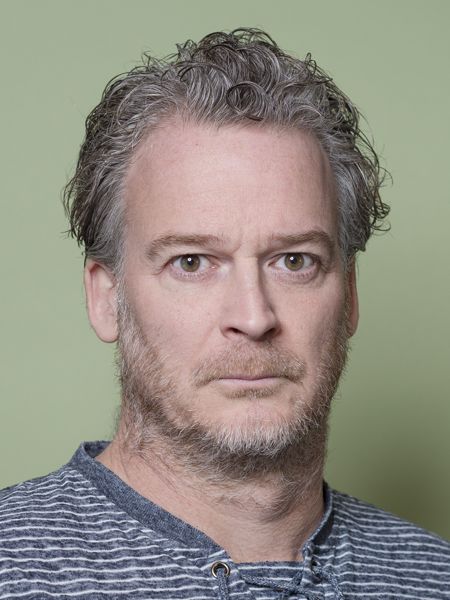
With networks projected to be first deployed around 2030, 6G technology development is driven by application-inspired use cases (e.g. cyber-physical-human fusion, industrial automation and robotics, immersive XR and ubiquitous surveillance), the support of sustainable development goals and objectives on spectrum/cost-efficient provisioning of high-capacity and broadband connectivity. The derived requirements related to e.g. spectral/energy/cost efficiency, area capacity, attainable throughputs, reliability, latency and object detection/positioning accuracy are to be made possible by a range of technological solutions. These technologies include solutions for ultra-dense cell-free networking, the use of FR3 spectrum, ultra-massive D-MIMO beamforming, integrated sensing and communications, reflective intelligent surfaces, the integration of terrestrial and non-terrestrial networks, and AI/NDT-based network optimisation. In this talk, after a brief overview of the technology evolution and the 6G drivers, requirements and development timelines, we will discuss these key 6G technological solutions and concentrate on the resource management challenges and trade-offs associated with their optimised exploitation.
TUTORIALS
Next to the regular conference program, Thursday, November 13, will be dedicated to tutorials. We will have four tutorials, two in the morning and two in the afternoon.
1) Samuel Oslovich and Sounak Kar (TU Delft) - A gentle introduction to quantum communication and networking (Room L016, 9:30-12:30)
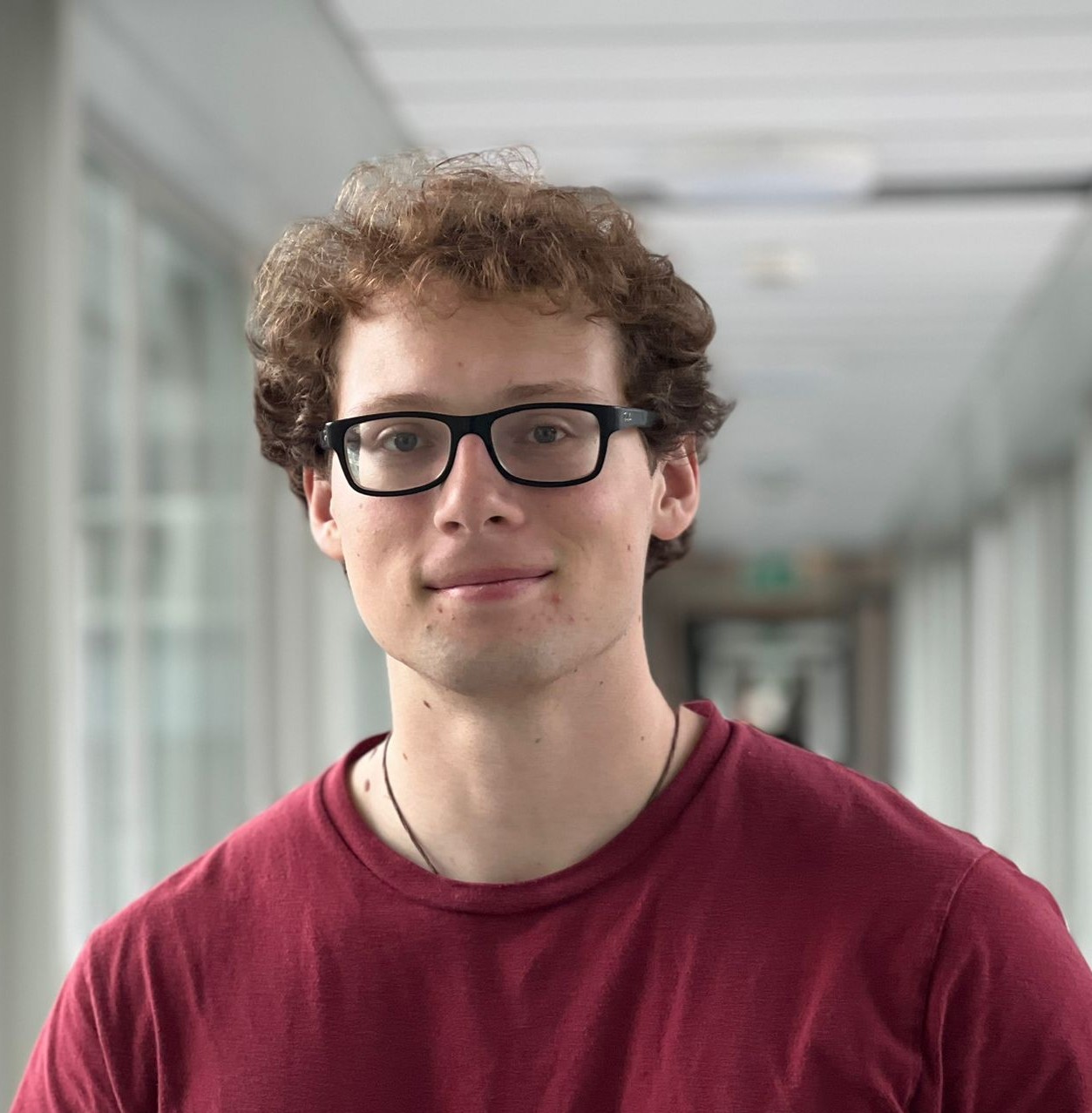
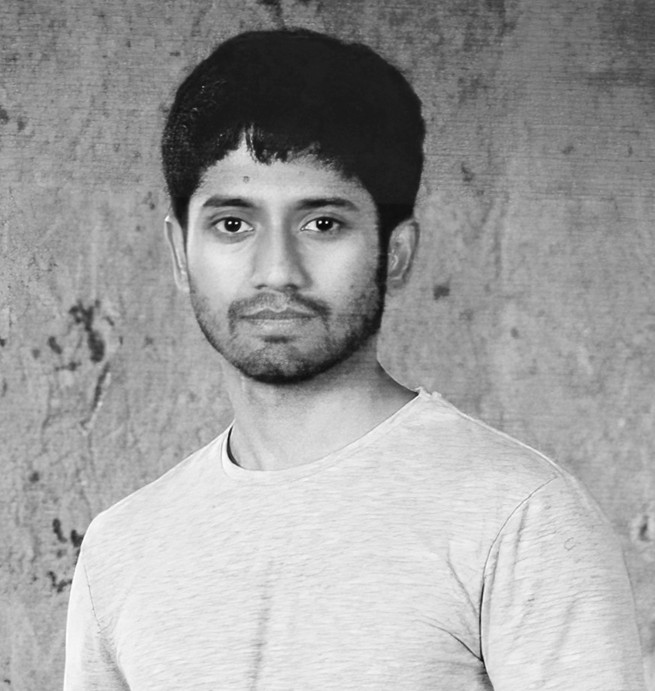 Quantum communication harnesses the principles of quantum mechanics to achieve secure and efficient information transfer, enabling capabilities that are fundamentally impossible within classical frameworks. In this tutorial, we will introduce the core concepts of quantum communication and networking, beginning with the key distinctions between classical and quantum information exchange. We will examine the physical challenges of extending quantum communication to long distances and explore the leading approach for overcoming these obstacles. We will also discuss how noise influences the quality of quantum communication tasks. Building on this foundation, we will explore representative tasks such as quantum teleportation and quantum key distribution, and outline the performance metrics used to evaluate their execution. We will then introduce other popular performance metrics, including those that are crucial from a network point of view. Finally, we will present an overview of ongoing research activities within our group, with a particular focus on the design considerations underlying our systems-engineering approach to developing a full-stack prototype quantum network for distributing entanglement over long distances.
Quantum communication harnesses the principles of quantum mechanics to achieve secure and efficient information transfer, enabling capabilities that are fundamentally impossible within classical frameworks. In this tutorial, we will introduce the core concepts of quantum communication and networking, beginning with the key distinctions between classical and quantum information exchange. We will examine the physical challenges of extending quantum communication to long distances and explore the leading approach for overcoming these obstacles. We will also discuss how noise influences the quality of quantum communication tasks. Building on this foundation, we will explore representative tasks such as quantum teleportation and quantum key distribution, and outline the performance metrics used to evaluate their execution. We will then introduce other popular performance metrics, including those that are crucial from a network point of view. Finally, we will present an overview of ongoing research activities within our group, with a particular focus on the design considerations underlying our systems-engineering approach to developing a full-stack prototype quantum network for distributing entanglement over long distances.
2) Nicolas Gast and Bruno Gaujal (INRIA and Univ. Grenoble Alpes) - From multiarmed bandits to weakly coupled MDPs (Room L017, 9:30-12:30)
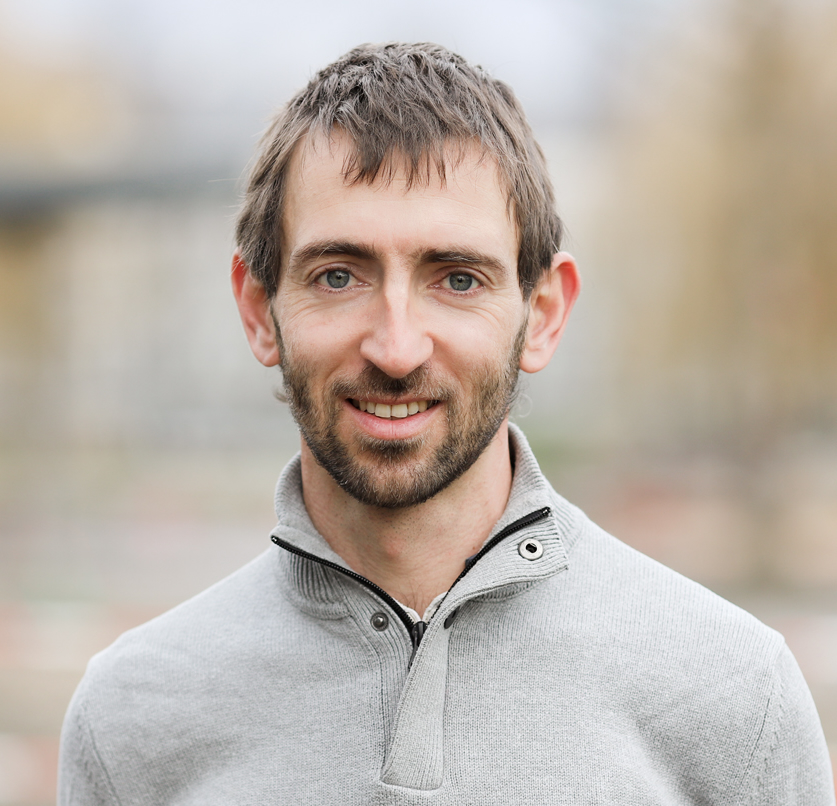 This tutorial will present our personal take on the treatment of Markovian bandits and their extensions to weakly coupled MDPs. The tutorial will be split into 3 parts.
This tutorial will present our personal take on the treatment of Markovian bandits and their extensions to weakly coupled MDPs. The tutorial will be split into 3 parts.
Part 1: Markovian bandits and their famous indexes
The first part is dedicated to the historical definition of Markovian bandits (restful or restless) and their applications. The original work by Gittins and Whittle will be discussed, as well as applications to various resource allocation and scheduling problems. This first session will also present several known results: complexity of computing the optimal policy, the notion of indexability, and the (non)-optimality of index policies.
Part 2: Finite-horizon and LP-relaxation
The second part introduces the LP relaxation of the bandit problem and its use to find near-optimal solutions when the number of arms grows. It will focus on the finite horizon case. We will show how the classical LP relaxation can be improved by re-optimization where the notion of non-degenerate LP plays a crucial role in deriving efficient and fast algorithms to compute the optimal policy.
Part 3: The infinite horizon
The last part is dedicated to the infinite horizon case. The classical UGAP (Uniform Global attractor property) will be introduced. Its need to obtain asymptotically optimal solutions will also be discussed. Alternative approaches using model predictive control theory will be presented. This last part will also include an overview of the recent results on reinforcement learning in Markovian bandits.
3) Poul Heegaard (NTNU) - Performability and survivability quantification (Room L016, 13:30-16:30)
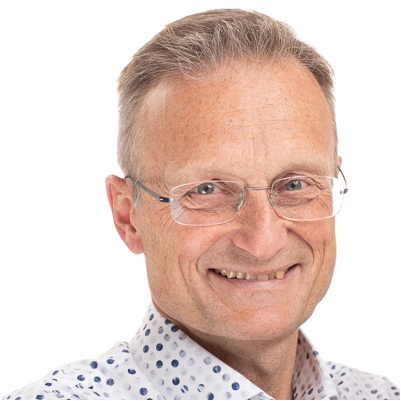 It is crucial to understand how the performance of ICT services (which are tightly interconnected with cyber-critical services and systems) is affected by system failures, service degradations, or disruptions. When a cyber failure or attack with catastrophic consequences occurs, it is extremely important to be prepared from a technical, operational, and organizational perspective. The modeling approaches and framework presented and discussed in this tutorial are very useful in order to assess and compare different system design and mitigation strategies under undesired events, such as random failures, human mistakes, and malicious cyber attacks.
It is crucial to understand how the performance of ICT services (which are tightly interconnected with cyber-critical services and systems) is affected by system failures, service degradations, or disruptions. When a cyber failure or attack with catastrophic consequences occurs, it is extremely important to be prepared from a technical, operational, and organizational perspective. The modeling approaches and framework presented and discussed in this tutorial are very useful in order to assess and compare different system design and mitigation strategies under undesired events, such as random failures, human mistakes, and malicious cyber attacks.
In this tutorial, we focus on quantifying the performability and survivability:
- Steady State Performability - how the steady state performance is influenced by an imperfect system.
- Transient Performability - how the performance changes after a failure and after a repair.
- Survivability (Transient Performability) - how the performance is recovered after a massive outage.
The main focus is the survivability quantification framework. A framework for assessment of system recovery subsequent to an undesired event and its consequences is required, e.g., to assess alternative protection mechanisms and recovery strategies. Both the spatial properties of the undesired event at hand and the system’s temporal evolution must be included in such a framework. The modeling approach used in this tutorial is Markov models, which can be combined with other mathematical models or (discrete event) simulations.
4) Bert Zwart (CWI and TU/e) - Performance analysis of future smart grids (Room L017, 13:30-16:30)
 The power grid has been one of the most significant engineering achievements in the history of mankind. It has kept our lights on for over a century, but is currently facing immense transformations.
The power grid has been one of the most significant engineering achievements in the history of mankind. It has kept our lights on for over a century, but is currently facing immense transformations.
Fossil fuel sources, such as oil and gas, will be replaced with renewable energy sources, such as solar and wind. The supply of electricity is less centralized and less predictable, and therefore more difficult to control. At the same time, novel devices such as electric vehicles and heat pumps lead to higher demand for electricity. A suitably decentralized and virtualized smart grid, capable of handling high levels of uncertainty, will be an immensely complex multi-scale system, both in terms of space (ranging from single devices to continents) and of time (ranging from milliseconds to decades).
The transformation from the classic power grid to the novel smart grid will be similar in scale to the way 20th-century telephony networks have transformed into the current internet. This tutorial aims to provide an introduction to this emerging application area and to illustrate the potential of techniques originating from the performance community towards tackling challenges in the energy transition.
I will provide a brief overview of the essential jargon in this field, followed by topics with a strong performance/applied probability flavor, including uncertainty modeling, reliability, cascading failures, battery control strategies, and vehicle charging.
The slides of the keynote talks and tutorials are available for download at this folder.

 Strong connections exist between random walks in the nonnegative quarter plane (RWs) and queueing systems arising in the performance analysis, modeling, and optimization of computer and communication systems. Solving for the stationary distribution of such RWs to obtain measures of interest is often based on either analytic or computational approaches. Notwithstanding the great strides of the latter, computing the stationary distribution can still be prohibitively expensive for very large RWs and for online/real-time applications of these RWs. Quantum computers offer the potential of achieving significant performance advantages for certain computational problems. However, despite this great potential, a number of important cases have been identified where quantum algorithms provide modest or no benefits over the most-efficient classical algorithms.
Strong connections exist between random walks in the nonnegative quarter plane (RWs) and queueing systems arising in the performance analysis, modeling, and optimization of computer and communication systems. Solving for the stationary distribution of such RWs to obtain measures of interest is often based on either analytic or computational approaches. Notwithstanding the great strides of the latter, computing the stationary distribution can still be prohibitively expensive for very large RWs and for online/real-time applications of these RWs. Quantum computers offer the potential of achieving significant performance advantages for certain computational problems. However, despite this great potential, a number of important cases have been identified where quantum algorithms provide modest or no benefits over the most-efficient classical algorithms. The current energy transition is a massive endeavour that requires a joint effort from industry, regulatory bodies, researchers, etc. The integration of renewables, decentralisation of the system, change in demand patterns, and liberalisation of markets, force to rethink some of the established concepts for how to operate power networks. We will dig into these challenges, looking at how we may reconsider solving some classical problems with modern analytical tools. For instance, emphasis will be placed on generalising electricity markets, going from linear programs to a more general optimisation framework, and going from a centralised pool to peer-to-peer market setups.
The current energy transition is a massive endeavour that requires a joint effort from industry, regulatory bodies, researchers, etc. The integration of renewables, decentralisation of the system, change in demand patterns, and liberalisation of markets, force to rethink some of the established concepts for how to operate power networks. We will dig into these challenges, looking at how we may reconsider solving some classical problems with modern analytical tools. For instance, emphasis will be placed on generalising electricity markets, going from linear programs to a more general optimisation framework, and going from a centralised pool to peer-to-peer market setups. Random walks on networks are versatile tools in discovering networks' structure: finding clusters and communities, ranking of the network's nodes by their importance, and embedding of networks in geometric spaces for machine learning tasks. In this talk, I will first discuss how the degrees of a (directed) graph affect the stationary distribution of a random walk on this graph. A very interesting case is random walks with restart, such as PageRank random walk, initially designed by Google to rank web pages. The analysis of these random walks is tractable because their stationary distribution is defined by local neighborhoods. Surprisingly, this local behavior can be very different in the directed and undirected versions of the same network model. Next, I will talk about a recent algorithm for computing the stationary distribution of random walks on large graphs. This algorithm is fast in practice and has potential for distributed implementation. I will present currently known cases of its exponential convergence and establish its connections to other algorithms such as power iterations, OPIC, Gauss-Southwell algorithms for PageRank, and gradient descent.
Random walks on networks are versatile tools in discovering networks' structure: finding clusters and communities, ranking of the network's nodes by their importance, and embedding of networks in geometric spaces for machine learning tasks. In this talk, I will first discuss how the degrees of a (directed) graph affect the stationary distribution of a random walk on this graph. A very interesting case is random walks with restart, such as PageRank random walk, initially designed by Google to rank web pages. The analysis of these random walks is tractable because their stationary distribution is defined by local neighborhoods. Surprisingly, this local behavior can be very different in the directed and undirected versions of the same network model. Next, I will talk about a recent algorithm for computing the stationary distribution of random walks on large graphs. This algorithm is fast in practice and has potential for distributed implementation. I will present currently known cases of its exponential convergence and establish its connections to other algorithms such as power iterations, OPIC, Gauss-Southwell algorithms for PageRank, and gradient descent. 

 Quantum communication harnesses the principles of quantum mechanics to achieve secure and efficient information transfer, enabling capabilities that are fundamentally impossible within classical frameworks. In this tutorial, we will introduce the core concepts of quantum communication and networking, beginning with the key distinctions between classical and quantum information exchange. We will examine the physical challenges of extending quantum communication to long distances and explore the leading approach for overcoming these obstacles. We will also discuss how noise influences the quality of quantum communication tasks. Building on this foundation, we will explore representative tasks such as quantum teleportation and quantum key distribution, and outline the performance metrics used to evaluate their execution. We will then introduce other popular performance metrics, including those that are crucial from a network point of view. Finally, we will present an overview of ongoing research activities within our group, with a particular focus on the design considerations underlying our systems-engineering approach to developing a full-stack prototype quantum network for distributing entanglement over long distances.
Quantum communication harnesses the principles of quantum mechanics to achieve secure and efficient information transfer, enabling capabilities that are fundamentally impossible within classical frameworks. In this tutorial, we will introduce the core concepts of quantum communication and networking, beginning with the key distinctions between classical and quantum information exchange. We will examine the physical challenges of extending quantum communication to long distances and explore the leading approach for overcoming these obstacles. We will also discuss how noise influences the quality of quantum communication tasks. Building on this foundation, we will explore representative tasks such as quantum teleportation and quantum key distribution, and outline the performance metrics used to evaluate their execution. We will then introduce other popular performance metrics, including those that are crucial from a network point of view. Finally, we will present an overview of ongoing research activities within our group, with a particular focus on the design considerations underlying our systems-engineering approach to developing a full-stack prototype quantum network for distributing entanglement over long distances. This tutorial will present our personal take on the treatment of Markovian bandits and their extensions to weakly coupled MDPs. The tutorial will be split into 3 parts.
This tutorial will present our personal take on the treatment of Markovian bandits and their extensions to weakly coupled MDPs. The tutorial will be split into 3 parts. It is crucial to understand how the performance of ICT services (which are tightly interconnected with cyber-critical services and systems) is affected by system failures, service degradations, or disruptions. When a cyber failure or attack with catastrophic consequences occurs, it is extremely important to be prepared from a technical, operational, and organizational perspective. The modeling approaches and framework presented and discussed in this tutorial are very useful in order to assess and compare different system design and mitigation strategies under undesired events, such as random failures, human mistakes, and malicious cyber attacks.
It is crucial to understand how the performance of ICT services (which are tightly interconnected with cyber-critical services and systems) is affected by system failures, service degradations, or disruptions. When a cyber failure or attack with catastrophic consequences occurs, it is extremely important to be prepared from a technical, operational, and organizational perspective. The modeling approaches and framework presented and discussed in this tutorial are very useful in order to assess and compare different system design and mitigation strategies under undesired events, such as random failures, human mistakes, and malicious cyber attacks. The power grid has been one of the most significant engineering achievements in the history of mankind. It has kept our lights on for over a century, but is currently facing immense transformations.
The power grid has been one of the most significant engineering achievements in the history of mankind. It has kept our lights on for over a century, but is currently facing immense transformations.
